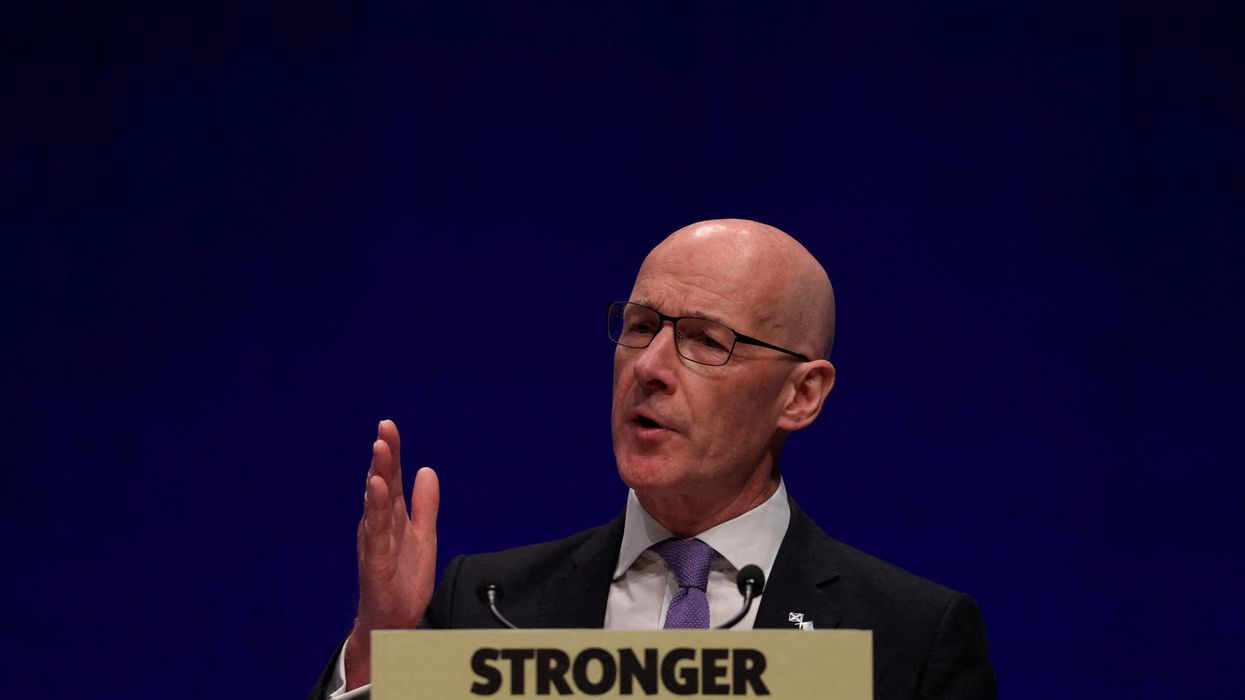Scotland's John Swinney was poised Thursday to take over as first minister and return as leader of the governing Scottish National Party (SNP) after his main rival decided against running for the top job.
Swinney, 60, who last led the pro-independence SNP from 2000 to 2004 when they were in opposition, announced his leadership bid on Thursday morning.
Within hours, former finance secretary Kate Forbes, a previous contender for the leadership, said she would not be running.
Outgoing First Minister Humza Yousaf announced on Monday that he would resign as party leader and Scotland's leader once a successor has been chosen to head the devolved government.
Forbes's decision appears to leave Swinney, the longest-serving lawmaker in Scotland's devolved parliament, as the sole candidate to succeed him.
Although contenders for the SNP leadership have until Monday to declare their candidacies, no further announcements are expected.
Launching his bid, Swinney said he was running "to unite the SNP and unite Scotland for independence", despite polls showing stalled support for a split from the UK.
"I want to build on the work of the SNP government to create a modern, diverse, dynamic Scotland that will ensure opportunity for all of our citizens," Swinney told supporters in Edinburgh.
A 'common purpose'
Forbes, in a statement released shortly after, confirmed she had considered running, but had instead opted to support Swinney after speaking with him and listening to his leadership pitch.
"We share a powerful common purpose for the country," she added, including "a passion to revitalise our party, reach out to those who feel disempowered and reinvigorate the independence movement".
Outgoing leader Yousaf, 39, has been in charge for little more than a year.
He announced his departure days after having ditched his junior coalition partners, the Scottish Green Party, in a row over climate policy - and ahead of a parliamentary confidence vote in his leadership.
Yousaf had struggled to convince in the role he inherited from predecessor Nicola Sturgeon, with the SNP embroiled in a party funding scandal and a challenging domestic policy landscape.
Forbes, 34, finished a close second to Yousaf in a bitterly fought leadership contest last year.
Her socially conservative views had been seen as a potential hindrance to her campaign.
With the SNP heading a minority government in the 129-seat Scottish parliament, any leader will need the support of another party to either form a governing coalition or pass pieces of legislation.
The only likely allies are the Greens but they have a socially liberal outlook and had indicated they would not be eager to work with Forbes.
A minority government
In his remarks, Swinney had praised his SNP rival, in a sign the pair may have agreed a pact to avoid another acrimonious leadership fight.
Insisting he wanted Forbes "to play a significant part" in his governing team, he lauded her as "an intelligent, creative, thoughtful person who has much to contribute to our national life".
The new SNP leader, expected to be in place by early June at the latest, will still need enough votes in the Scottish parliament to be elected first minister.
The government is currently two votes short of an overall majority, only surviving a no-confidence vote brought by the Labour opposition on Wednesday thanks to the backing of the Greens.
The ructions in the SNP, which has dominated Scottish politics for nearly two decades, are being closely watched in London, ahead of a UK general election later this year.
The SNP currently holds 43 seats in the UK parliament.
The UK's main Labour opposition is hoping for a resurgence in its former stronghold north of the English border to help it win an outright majority in the general election. (AFP)




